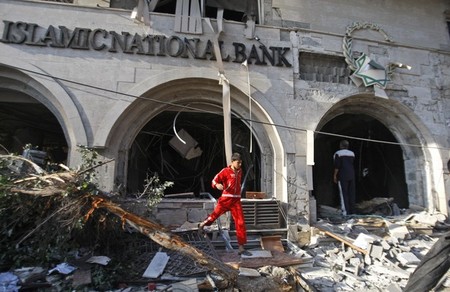Why invade Libya.

Judah Grunstein isn't impressed with "the idea that, because the U.S. and the global community does not intervene everywhere and every time that tyrants and despots abuse their people, it should not intervene in Libya." He writes:
However, we shouldn't let constraints in particular instances tie our hands across the board, especially in a situation such as Libya, where there are no great-power interests at stake, and where the balance of forces and circumstances is largely in our favor.What I'm presenting here is a hybrid case for intervention that is based on both liberal interventionism, to the extent that the intervention in Libya is meant to support the Libyan uprising as well as the broader wave of popular revolt throughout the Arab world, and cold-eyed realpolitik, to the degree that the balance of forces allows for it and a successful outcome will advance our broader global interests. So, why Libya and not Côte d'Ivoire or Bahrain? Because in Libya we can, in Côte d'Ivoire "we" already did, and in Bahrain we can't.
I guess the question centers on what it is we think "we can" do. It's important to recognize that intervening in Libya and bombing Gaddafi's supporters is not the same thing as finding a politically acceptable end-state to the country's rebellion - a fact that is being resolutely over-looked by most of the campaign's supporters. So, yes, there are very low barriers to entry in Libya, which makes it attractive where a campaign against Bahrain or Burma is much less so. But it's the barriers to exit that matter most.
(AP Photo)











